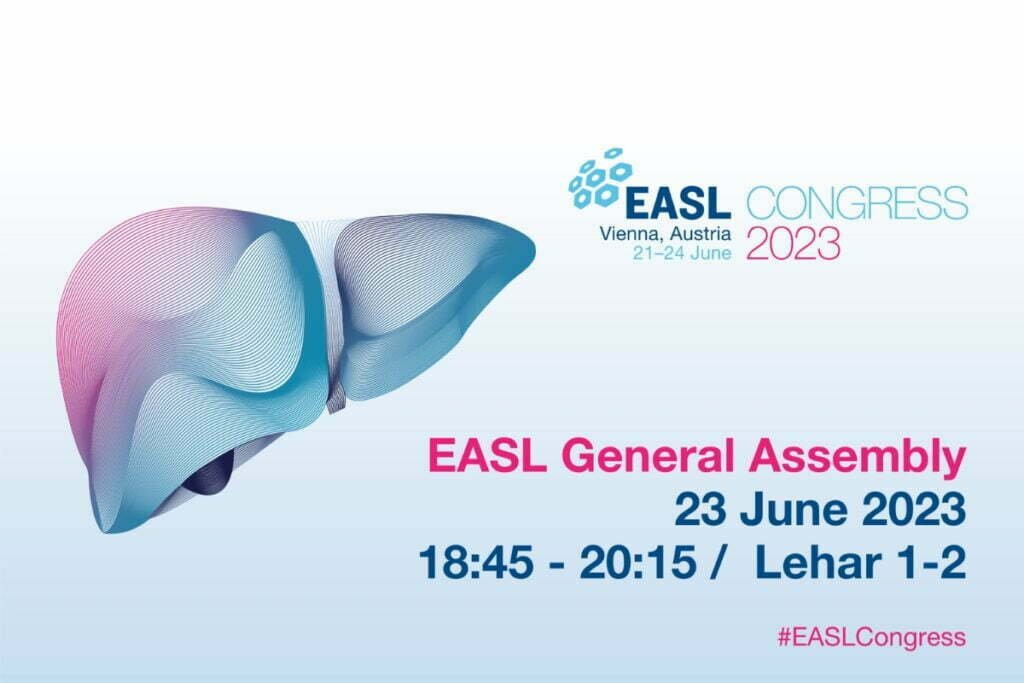According to Gilead Sciences new data will be presented at the 2023 European Association for the Study of the Liver (EASL) Congress, which will take place June 21–24. The Week 96 results from the pivotal Phase III trial of Hepcludex (Bulevirtide) examining the effectiveness and safety for the treatment of hepatitis delta virus (HDV) and late-breaking data on the effects of sustained therapy with Bulevirtide will be among the key findings from more than 70 presentations. Gilead will also provide long-term outcomes from ongoing trials of Vemlidy (tenofovir alafenamide) in chronic hepatitis B (HBV) and real-world statistics on initiatives to support the World Health Organization’s (WHO) aim of eradicating viral hepatitis as a public health issue by 2030.
“We are pleased to share our latest viral hepatitis and liver fibrosis data at EASL 2023 as we strive to support the needs of patients and help achieve the WHO goal of viral hepatitis elimination by 2030. Despite the significant progress that has been made, considerable challenges still remain for those living with liver disease. We are proud to be able to share our ongoing research and efforts to help address these needs.”
– Frank Duff, MD, Senior Vice President, Virology Therapeutic Area Head, Gilead Sciences
Gilead, a pioneer in the study of hepatitis delta, will present 15 papers on HDV, including the most recent Week 96 results from the important Phase III MYR301 trial of Bulevirtide in chronic HDV patients (OS-068). Additionally, information on non- and partial-responders (LBP-20) who received Bulevirtide therapy for an additional 96 weeks showed enhanced virologic and biochemical responses. These findings support the effectiveness and safety of Bulevirtide and show the advantages of ongoing treatment for those with HDV, the most serious kind of viral hepatitis.
A retrospective observational cohort study’s real-world data will be given, emphasizing a greater incidence of comorbidities at baseline and a higher risk of liver-related outcomes in persons with HDV/HBV co-infection than in those with HBV mono-infection (WED-116). Additionally, data on how HDV affects untreated HDV patients’ tiredness and health-related quality of life (FRI-124) will be shown, underscoring the disease’s tremendous burden and the considerable expense of healthcare it entails.
The two global Phase III studies (Study 108 and Study 110) evaluating long-term outcomes in chronic HBV patients treated with tenofovir alafenamide (TAF) or tenofovir disoproxil fumarate (TDF) who subsequently switched to TAF will present their final 8-year safety (SAT-153) and efficacy (OS-067) data in HBV.
Gilead will present nine abstracts on hepatitis C (HCV) that emphasize the need for tailored screening, care, and management strategies and highlight the impact of potential drug-drug interactions (DDIs) in the real world to help patients make the best treatment decisions while using fewer resources and spending less money.
Results on improving screening and linking to care, which are essential steps on the road to hepatitis eradication, are included in the data. The ‘Scientific Highlights’ (OS-091) will feature the findings from a project that used machine learning to enhance HCV screening and connection to care.
The usage of DDI medications by patients starting therapy with pangenotypic direct-acting antivirals (DAAs) will be evaluated using real-world data from the US. Patients starting Epclusa therapy were less likely to stop using their DDI-related medication before starting a DAA than patients starting treatment with glecaprevir/pibrentasvir among those with baseline DDI-related drug usage. To evaluate the effects of putative DDIs in the actual world, more study is required.
In order to get a better understanding of how these medications affect persons with various hereditary NASH predispositions, Gilead will share data on the effects of antidiabetic and lipid-lowering medicines on liver fibrosis biomarkers. Data on the correlation between non-invasive SomaSignal NASH scores and histologic evaluations acquired from liver biopsy (SAT-438) will also be given, enhancing the ability to gauge therapy efficacy in upcoming NASH studies.
The European Medicines Agency (EMA)’s Committee for Medicinal Products for Human Use (CHMP) proposed in April 2023 that Bulevirtide receive full Marketing Authorization (MA) for the treatment of people with chronic HDV and compensated liver disease. In July 2020, conditional MA was first granted for Bulevirtide in order to give those who have HDV quick access to therapy. Bulevirtide is an agent under investigation in the US and outside of the European Economic Area. Health authorities in these areas have not determined the bulevirtide’s effectiveness and safety.





























